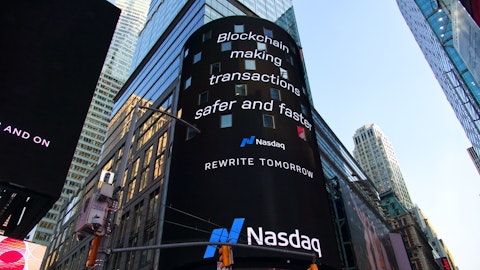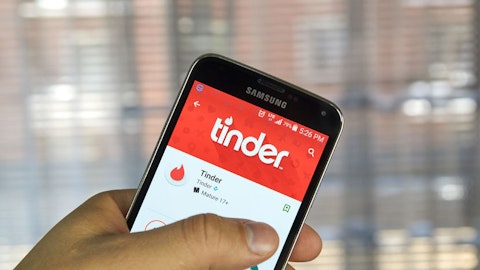And then, as we get through next year, I think you will have a much more normal payer base from which to grow through marketing and product initiatives. And then, I think on your question around LTV, of the weekly subs, we’re confident that not only are the weekly subscribers helpful from a revenue accretion standpoint and an RPP standpoint, but that they are positive on an LTV basis. We’ve been monitoring the renewal rates and the resubscription rates of these subscribers, and that’s been meeting or even exceeding our expectations. And so, we think that this is a long-term win. It’s not some short-term thing that we’ve done. It’s clearly a long-term, healthy thing to do for the ecosystem, and we’re confident of it. And as I think you probably know, we’ve tested weekly subscribers on other brands of ours.
So, it’s not just a Tinder. We’ve been testing them for a while I think more than a year at some of our smaller brands, and the metrics that we’ve seen there are consistent with what we were seeing at Tinder. So, we now have a lot of data around resubscriptions and renewal rates, and we’re confident in our understanding of the LTV of these subscribers and the fact that it’s a positive LTV. And it’s frankly meeting a need, as BK said for what younger users want. They’re comfortable at the higher-priced, but lower duration packages, and so that’s what we’re delivering, and we think that’s always a positive for the business.
Justin Patterson: Great, thank you.
Operator: The next question comes from Cory Carpenter of J.P. Morgan. Please go ahead.
Cory Carpenter: Thank you. Can you expand on your decision to settle the Google lawsuit before trial, just how you think about this outcome for Match, and then, more specifically, Gary, could you talk about the financial impact embedded in your 2024 outlook from this? Thank you.
Gary Swidler: Sure. So, first of all, I would say that we’re pleased with the outcome of the settlement. Getting the litigation resolved from our perspective is a good thing. There’s always uncertainty when you’re going into a trial, and we feel good that we’ve been able to provide shareholders with certainty around this topic for at least the next few years. And more importantly, we’ve been able to provide our users with a choice of billing, which is something that we have consistently said is critical to our users, something that we want to be able to provide, and we’re happy that we have the opportunity now to provide user choice billing to our consumer base, so we think that’s a real positive. Now, unfortunately, the terms of the settlement are confidential, so there’s not a ton of detail that we can go into but let me try to unpack some of the pieces for you.
And if you go back all the way to October of 2021 that’s where Google wanted to start implementing the change in their billing policies, and we’re sitting here now more than 2 years later, effectively, and Google had asked us to escrow $40 million against the incremental costs from October 21 through the lawsuit, and as part of the settlement, we basically said we basically agreed that we won’t owe any amounts prior to the end of this year, and so what that means is everything that we’ve been processing on credit cards for the last two-plus years there’s no incremental fees owed, and I think if you go back to our earnings release in May of 2022, we estimated that the change in policy was probably about a $6 million per month cost, and so you can probably do the math on those savings over that period of time that I just enumerated.





